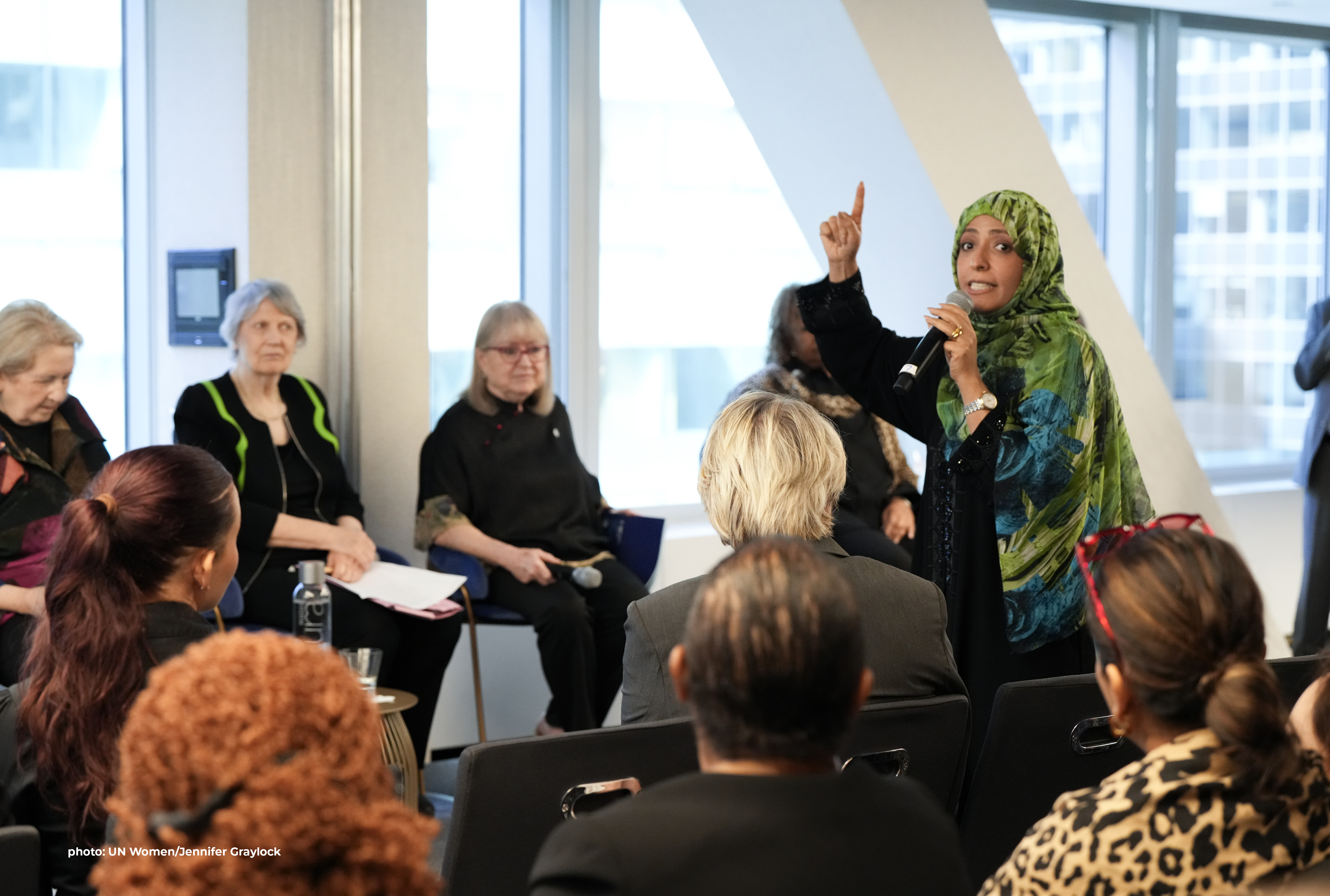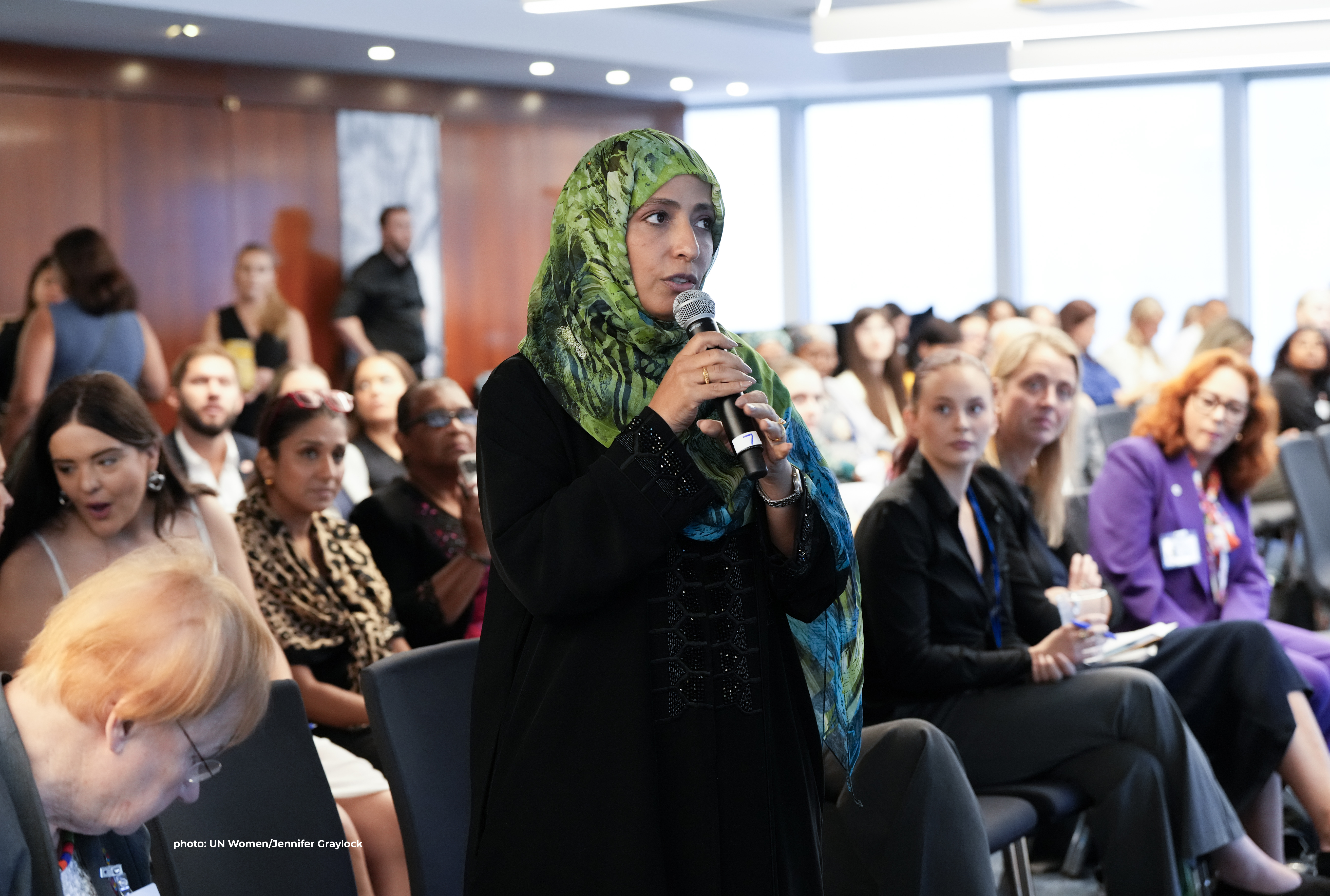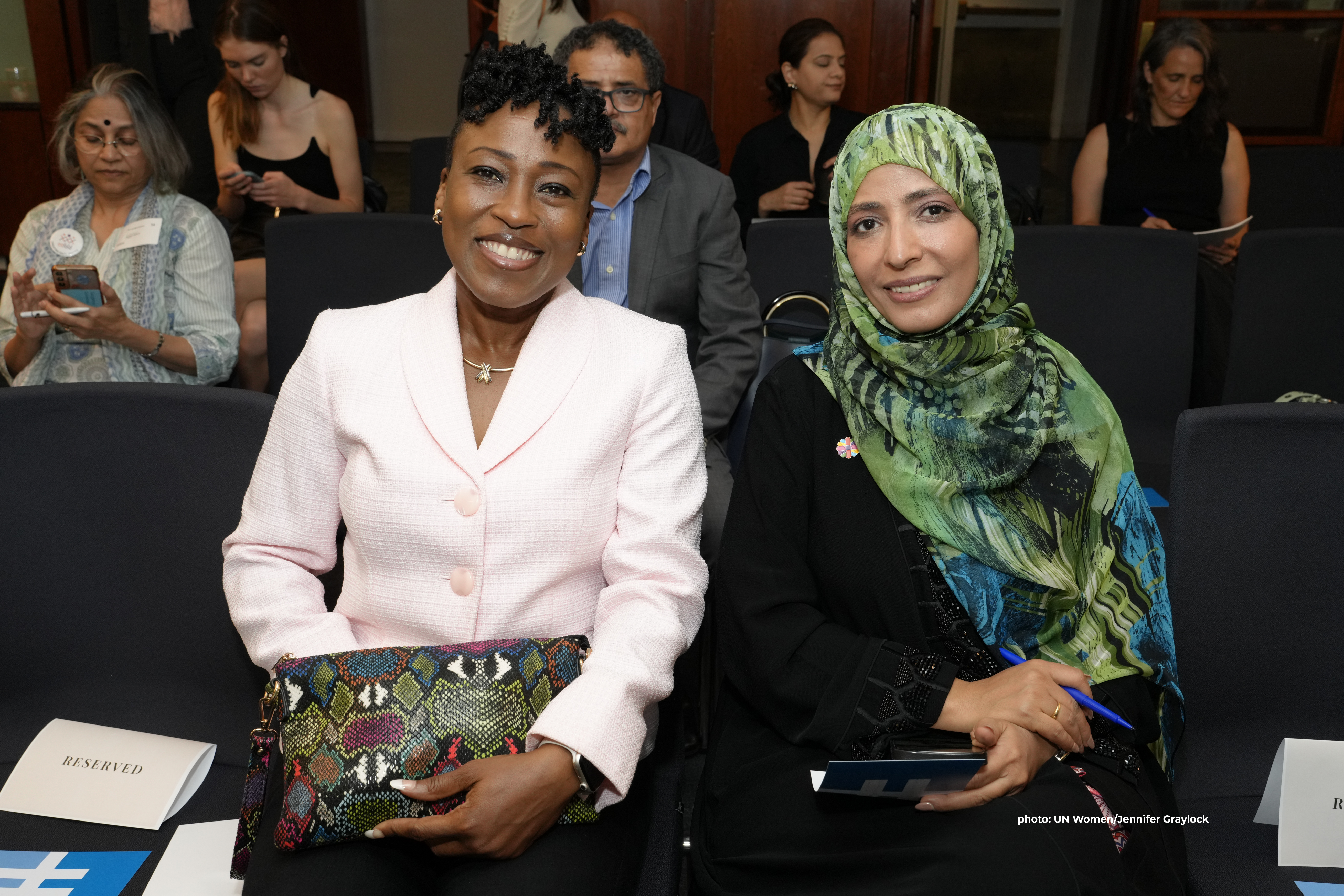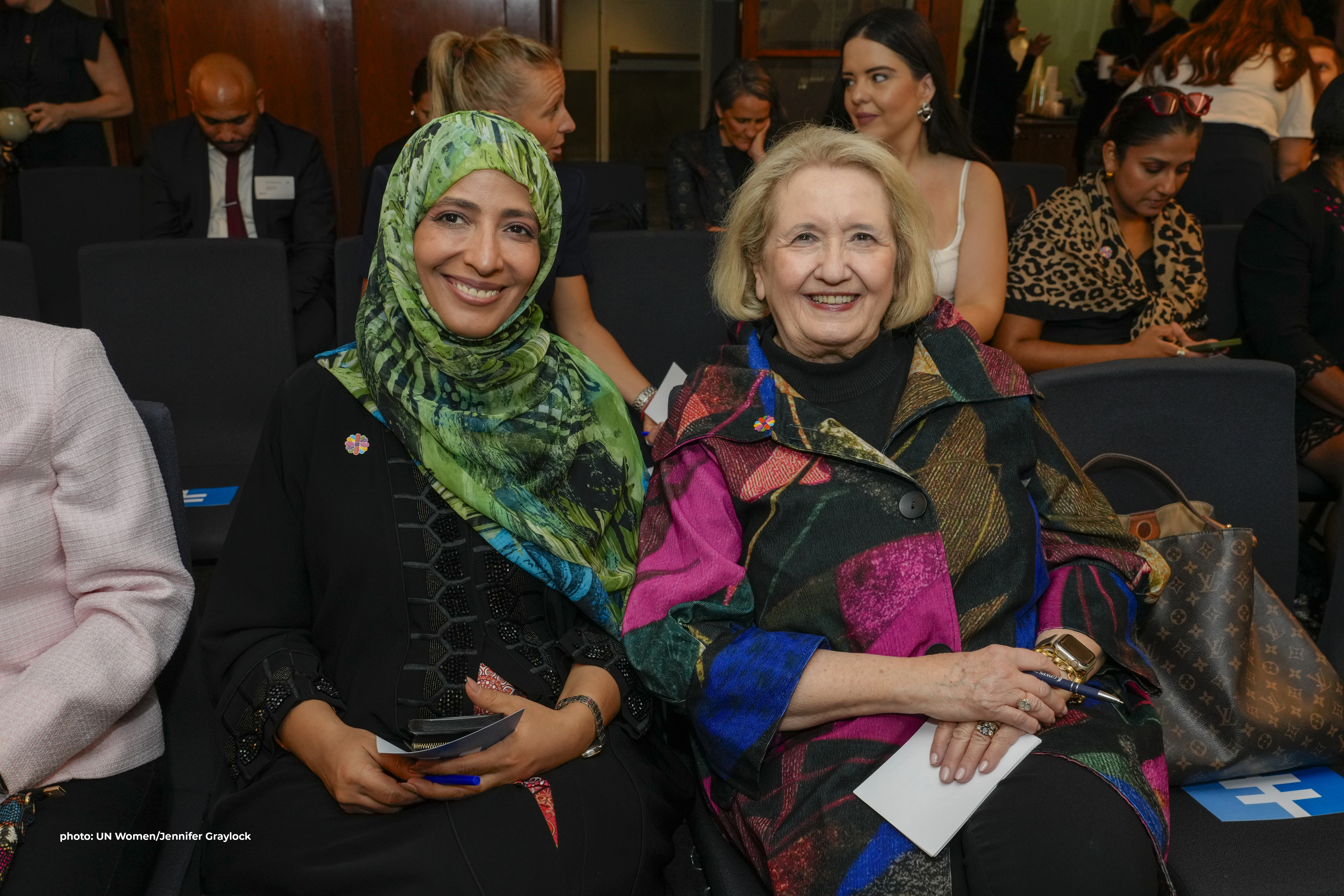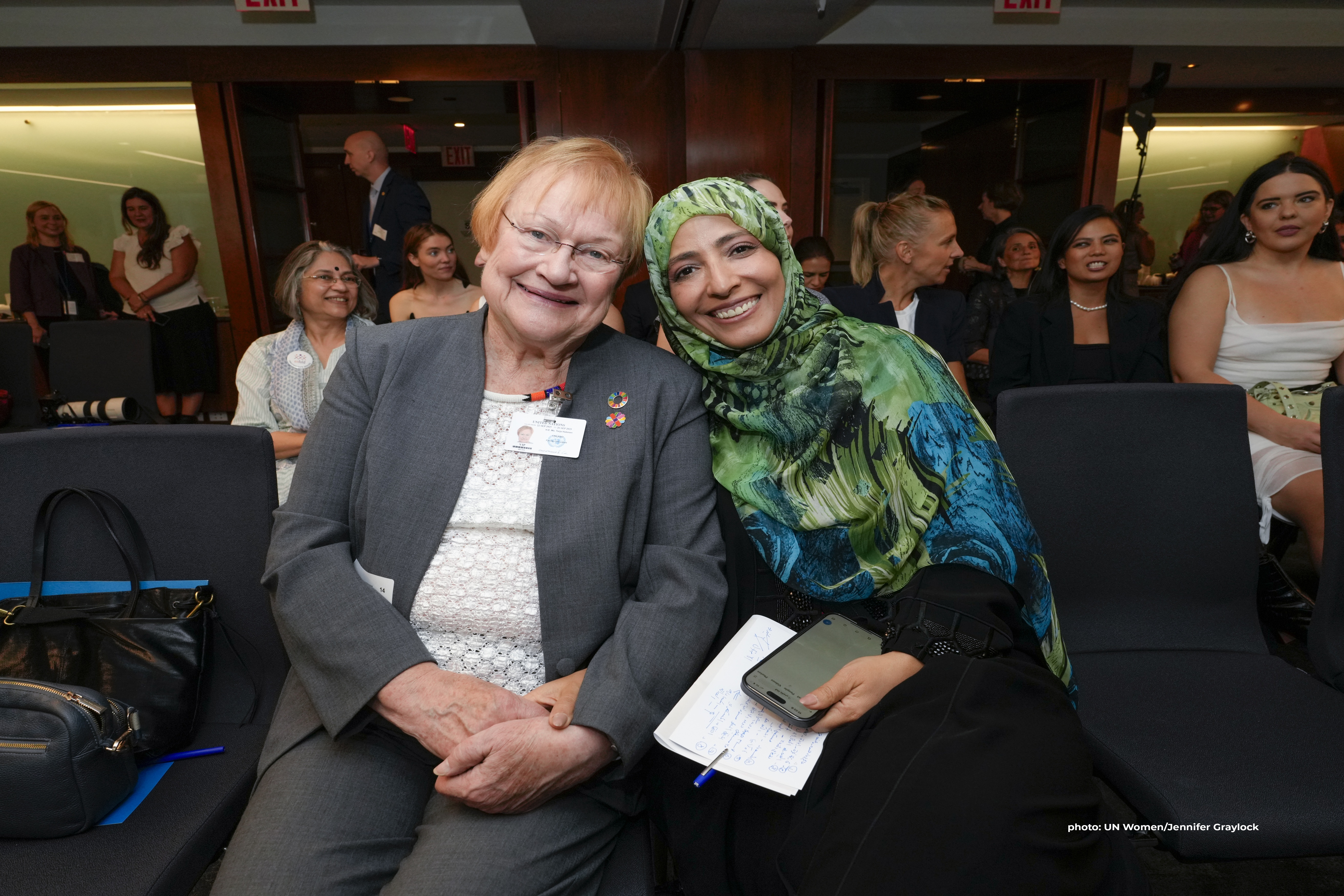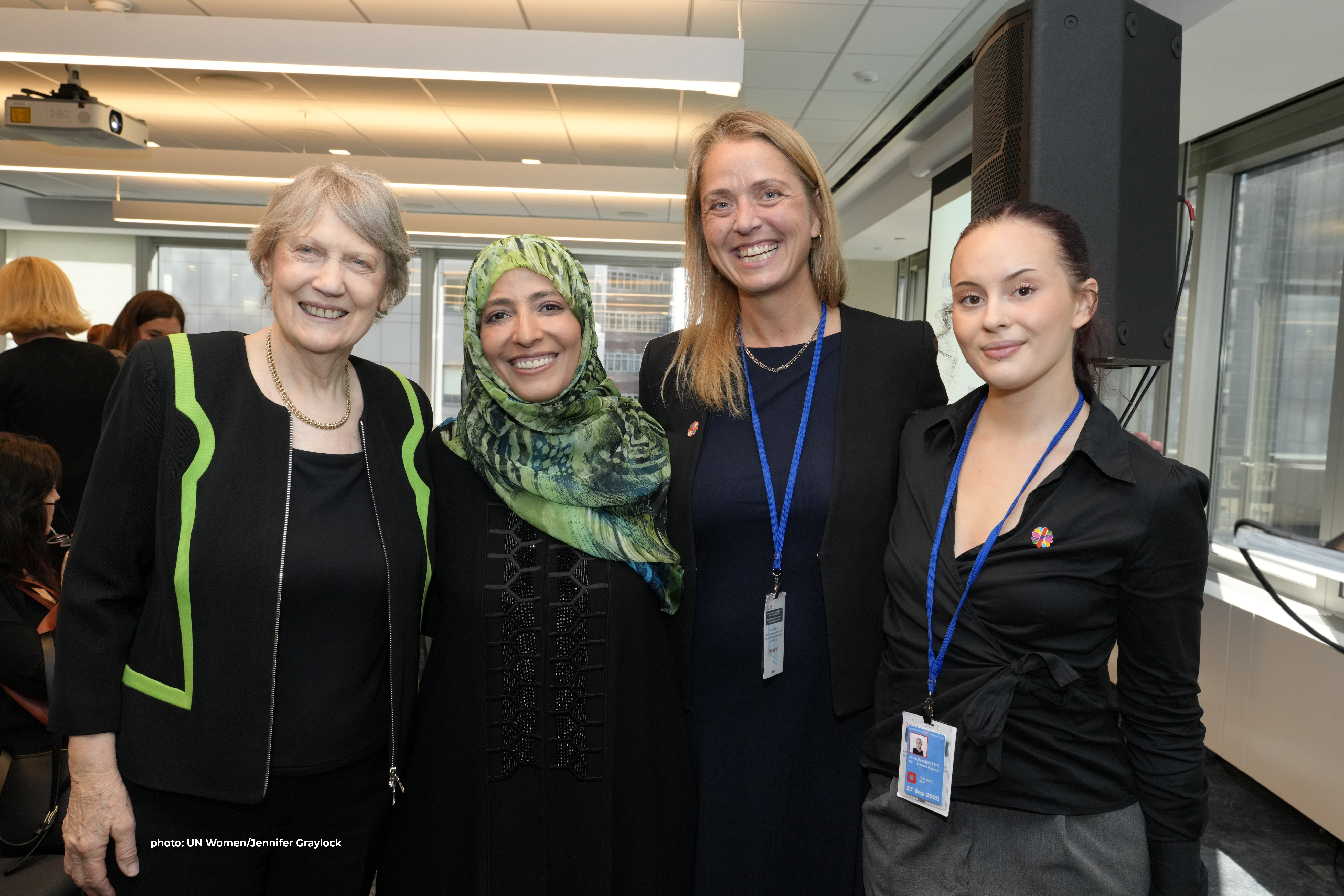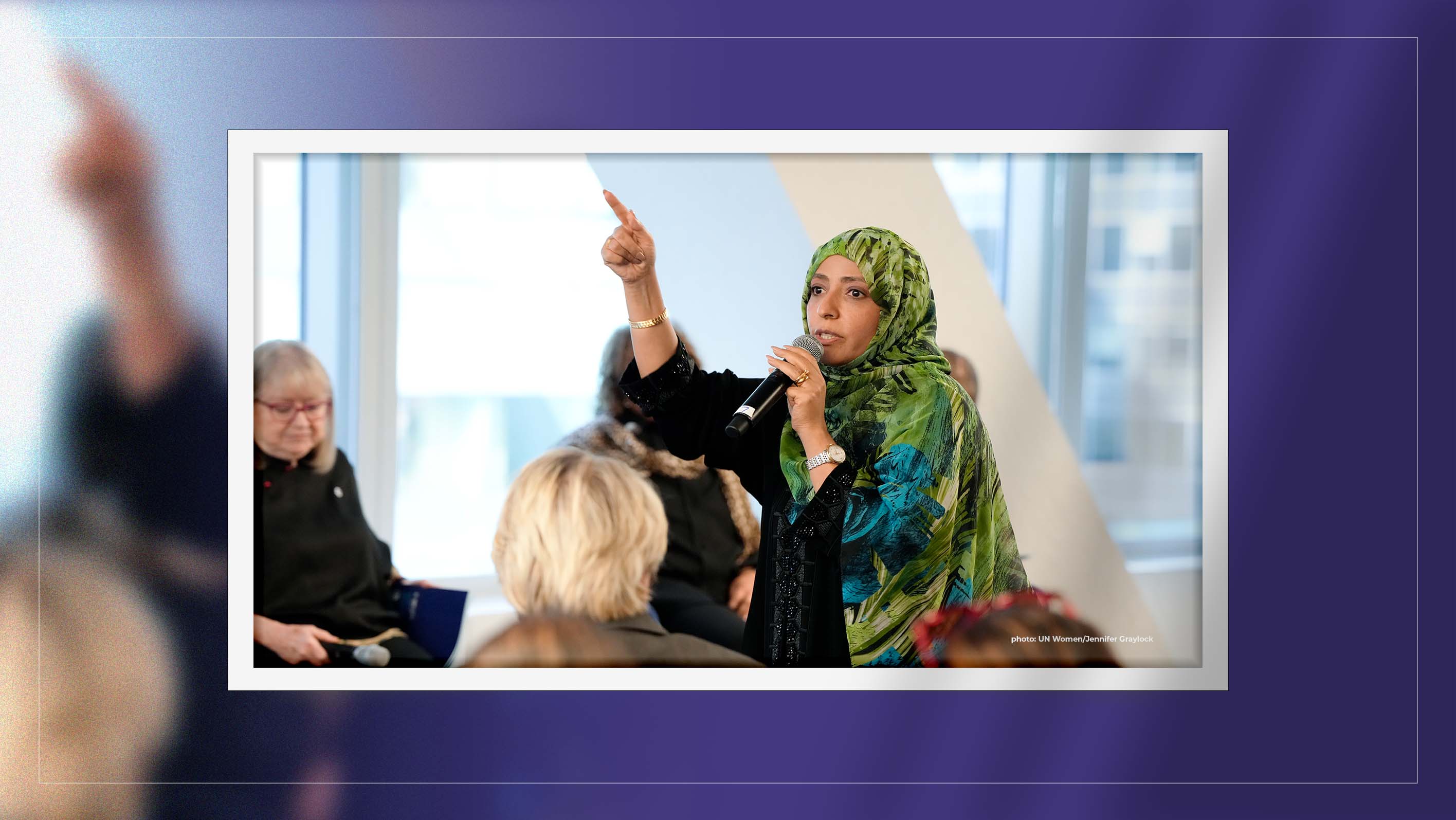Nobel Peace Prize laureate and human rights advocate Tawakkol Karman delivered a powerful address at a high-level side event organized by the UN Women Leaders Network in cooperation with the United Nations Foundation, urging the international community to place women at the center of peace, justice, and human rights efforts.
The gathering brought together women leaders from across generations and regions to highlight women’s critical role in advancing peace and security.
Karman opened her speech with a stark reminder of the current global reality: “We meet today in a world that is becoming increasingly cruel and unjust toward women in many regions, and where violence against the vulnerable continues to rise. We gather at a moment that tests the conscience of humanity and the sincerity of our commitments to peace, justice, and human rights.”
Turning to Gaza, she described what she called a “catastrophe” in which women are bearing the heaviest burden of war. “More than 70,000 lives have been lost—most of them women and children—and thousands remain trapped beneath the rubble,” Karman said. She added that hospitals have been turned into graveyards, homes reduced to ruins, and schools and universities destroyed, leaving women not only to grieve their families but also to endure homelessness, hunger, and a lack of medical care, all under what she denounced as the helplessness or complicity of the international community.
She then reflected on her homeland, Yemen, where women continue to struggle amid years of war and foreign interference. “They live caught between Iranian-backed coup militias on one side and regional powers seeking to impose guardianship and divide the country on the other,” Karman noted. Despite the collapse of state institutions, widespread famine, and the breakdown of essential services, she praised Yemeni women’s resilience: “They continue to demand freedom and affirm their conviction that Yemen’s future can only be built upon a just and democratic state—one that protects rights and guarantees dignity.”
Karman stressed that women are consistently the most affected by wars, occupations, and dictatorships, yet remain the most capable of carrying the banner of hope and resistance. She declared: “There can be no genuine peace without the participation of women, no justice without women at the forefront of the struggle for freedom, and no future without recognizing their role as changemakers and leaders of society, even in the most difficult of circumstances.”
Concluding her remarks, she tied women’s freedom to the broader liberation of societies: “The freedom of women is inseparable from the freedom of society as a whole. When women prevail, the entire nation prevails; when women are oppressed, the entire people are oppressed.”
Karman called on the international community to stand with women in Gaza, Yemen, and worldwide who face war, tyranny, poverty, and discrimination, urging that through their strength, humanity can build “a more just, more peaceful, and more dignified world for all.”
